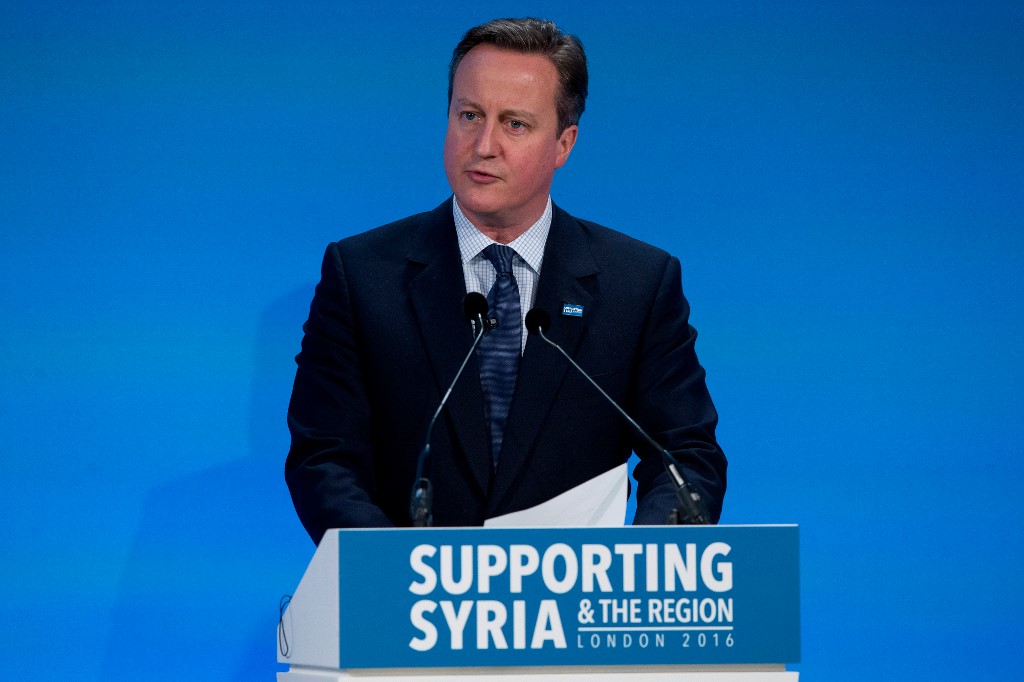How ignorant British policy inflamed the war in Syria

A 2017 BBC Panorama investigation showed how UK aid money was being diverted to terrorist funding in Syria without basic checks and balances. Jonathan Foreman’s book Aiding and Abetting previously argued that British aid in general has proved counterproductive because of a lack of proper research and application.
The recent MEE revelations about British propaganda efforts in Syria further undermine the UK’s rationale for its divisive policy, casting a grim light on its supposed neutrality in foreign conflicts.
Questioning UK policy
Several former British ambassadors to Syria were opposed to the UK’s foreign manoeuvring during the early days of the war, before all hell broke loose and Syria spiralled into a regional conflict. So what was the UK’s endgame? Was it to oust Syrian President Bashar al-Assad, or just weaken him - or was it complete regime change?
The UK’s actions certainly have not contributed to stability. This is all the more alarming, as more than any other Western country, the UK had forged close ties with the Syrian government, with dozens of MPs visiting Syria before the war broke out. Many diplomats and military officials with knowledge, experience and insights into Syria have questioned the UK’s policy.
The UK has been obsessed with the 'Assad must go' notion, which has inhibited rational policy
Joshua Landis, a leading Syria expert in the US, wrote in 2011 that the Syrian government would likely survive, and that there would have to be a negotiated way out of the conflict.
Similarly, the late Patrick Seale, whose books on prewar Syria top the reading list on the Levant, argued that the opposition was not united and regime change would fail, citing the need for a negotiated path.
Former UK Prime Minister Tony Blair’s adviser, Ed Husain, argued the same narrative in 2011. But these warnings were not heeded. Instead, the UK took an exceptionally hostile approach to Syria, without looking to the consequences.
Confused and hostile
The UK arguably led the US into going headstrong into Syria, even as Libya had begun to unravel. Former US President Barack Obama, in an Atlantic interview, launched an astonishing attack on former UK Prime Minister David Cameron, arguing that he took his eye off the ball without finishing the job in Libya, and then moved on to Syria, urging war there.
David Lesch, author of The New Lion of Damascus, has told me several times that after his meetings with both the UK and US leaderships in the early days of the war, it was the British who seemed confused and more hostile towards Damascus.
In the first years of his presidency, Assad was warmly welcomed in London and even met the Queen. The British Syrian Society brought dozens of MPs to Syria before the war, and beyond official British visits, a glance at the society’s events page shows a who’s who of the UK’s top business, political and social elite.
When the war began, however, the government was not interested in talking or listening, as Cameron appeared to be driven by a Blair-esque desire for righteous wars. Yet, MPs historically defeated Cameron and the Foreign Office’s push in 2013 to launch attacks on Syria, seeing a lack of strategy in the endgame.
Then and since, the UK has been obsessed with the “Assad must go” notion, which has inhibited rational policy. Anyone who suggests the opposite is declared an “Assadist” or regime supporter. The then chairman of the UK Parliament's Foreign Affairs Committee, Crispin Blunt, had written in The Telegraph that removing Assad was not the solution. The chairman of the Defence Committee, Julian Lewis, also argued similarly on the BBC and the Guardian.
They clearly did not see an overall policy or strategy in Syria. If the two most fundamental oversight committees in Parliament were not convinced that says a lot.
'Politics by other means'
Military leaders studying Clausewitz are taught that “war is a continuation of politics by other means”. Once the war had peaked, the UK’s former defence chief told CNN that it would be better to let Assad win and negotiate.
Other leading generals, including Sir Simon Mayall, a former UK top military adviser in the Middle East, have suggested that UK policy was hampered by “wishful thinking” and ignorance. Former army chief General Richard Dannatt said the solution lay in working with Assad to talk and end the war.
Two decorated former heads of British special forces, Jonathan Shaw and John Holmes, both told me previously how wrong the UK had been with regards to Syria. Former British ambassador Sir Roger Tomkys also told me that the UK was wrong in jumping the gun to oust Assad, and three former ambassadors have voiced publicly their opposition as well.
The UK’s support of clandestine groups that were terrorists, coupled with propaganda support to spread divisions and hatred, inflamed the war in Syria. There has never been a proper strategy; far from it.
The views expressed in this article belong to the author and do not necessarily reflect the editorial policy of Middle East Eye.
Middle East Eye propose une couverture et une analyse indépendantes et incomparables du Moyen-Orient, de l’Afrique du Nord et d’autres régions du monde. Pour en savoir plus sur la reprise de ce contenu et les frais qui s’appliquent, veuillez remplir ce formulaire [en anglais]. Pour en savoir plus sur MEE, cliquez ici [en anglais].







